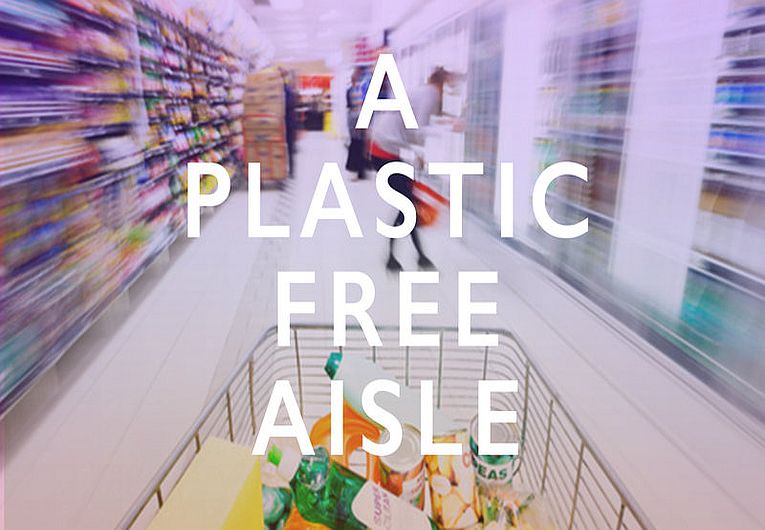Credit: © Sian Sutherland
Our decades-long addiction to plastic packaging has come at a heavy price. One third of the fish caught off the coast of South West England are thought to contain pieces of plastic. Toxic plastic debris has become a permanent fixture in our food chain, with little attention paid to the potentially devastating effects on our environment and human health.
Toxic debris from plastic packaging kills approximately a million seabirds and more than 100,000 marine mammals each year. The rapid proliferation of plastic products over the past 70 years has led us to the point where more than 8 million tons of plastic are dumped in our oceans each year. The Ellen MacArthur Foundation forecasts that there will be more plastic than fish in global seas by 2050.
A study published earlier this year revealed that European seafood eaters ingest up to 11,000 tiny pieces of plastic every year. Yet despite a wealth of damning evidence, the impact of plastic on human health is often overlooked. A UN report in 2016 warned that people who consume plastic-contaminated fish may be exposed to chemicals that can cause poisoning, infertility, and genetic disruption.
Our food chain is set to become even less secure as more plastic waste is dumped in the oceans in the decades ahead. Dame Sally Davies, Chief Medical Officer for England, is leading a study investigating the scale of the problem which is due to report later this year. UK plc also has a crucial role to play in addressing the issue.
We really cant go on like this.
Recycling is often heralded as the answer to the pollution problem, yet every piece of plastic ever made – unless it has been burned – still exists. Despite increasing rates of recycling in the UK the vast majority of the 300 million tons of plastic produced globally each year remains unrecycled.
A blanket ban on plastic packaging is unrealistic, although a cultural shift away from plastic to biodegradable packaging is achievable with the support of UK plc. Britains supermarket chains have made some progress in recent years on nudging consumers away from plastic bags, but could still do much more to stem the tide of ocean pollution.
I co-founded environmental activist campaign A Plastic Planet last year in a bid to convince UK supermarkets that a plastic-free aisle would be both good for business and the environment. A plastic-free aisle would empower consumers to reject goods laden with plastic packaging in favour of more sustainable alternatives. The aisle would feature exclusively petrochemical plastic-free products.
A 2015 Sustainable Brands survey revealed that more than 80% of shoppers consider environmental impact when deciding which products to purchase. With consumers becoming increasingly aware of green issues, introducing a plastic-free aisle would give supermarkets a fresh way of attracting the UKs growing army of environment-savvy consumers.
Shoppers can buy gluten-free, dairy-free, fat-free; so why not plastic-free?
To learn more about the campaign for a plastic-free aisle, please visit A Plastic Planet.
A Plastic Planet is a grass roots organisation with a single aim - a plastic free aisle in supermarkets. A Plastic Planet is working with: politicians; scientists; charities; NGOs; packaging manufacturers; consumer goods producers; and supermarkets themselves to deliver the campaigns aim. The campaign founders are serial entrepreneur Sian Sutherland, former CEO of Mio and Mama Mio and Frederikke Magnussen, co-founder of Being Human.










